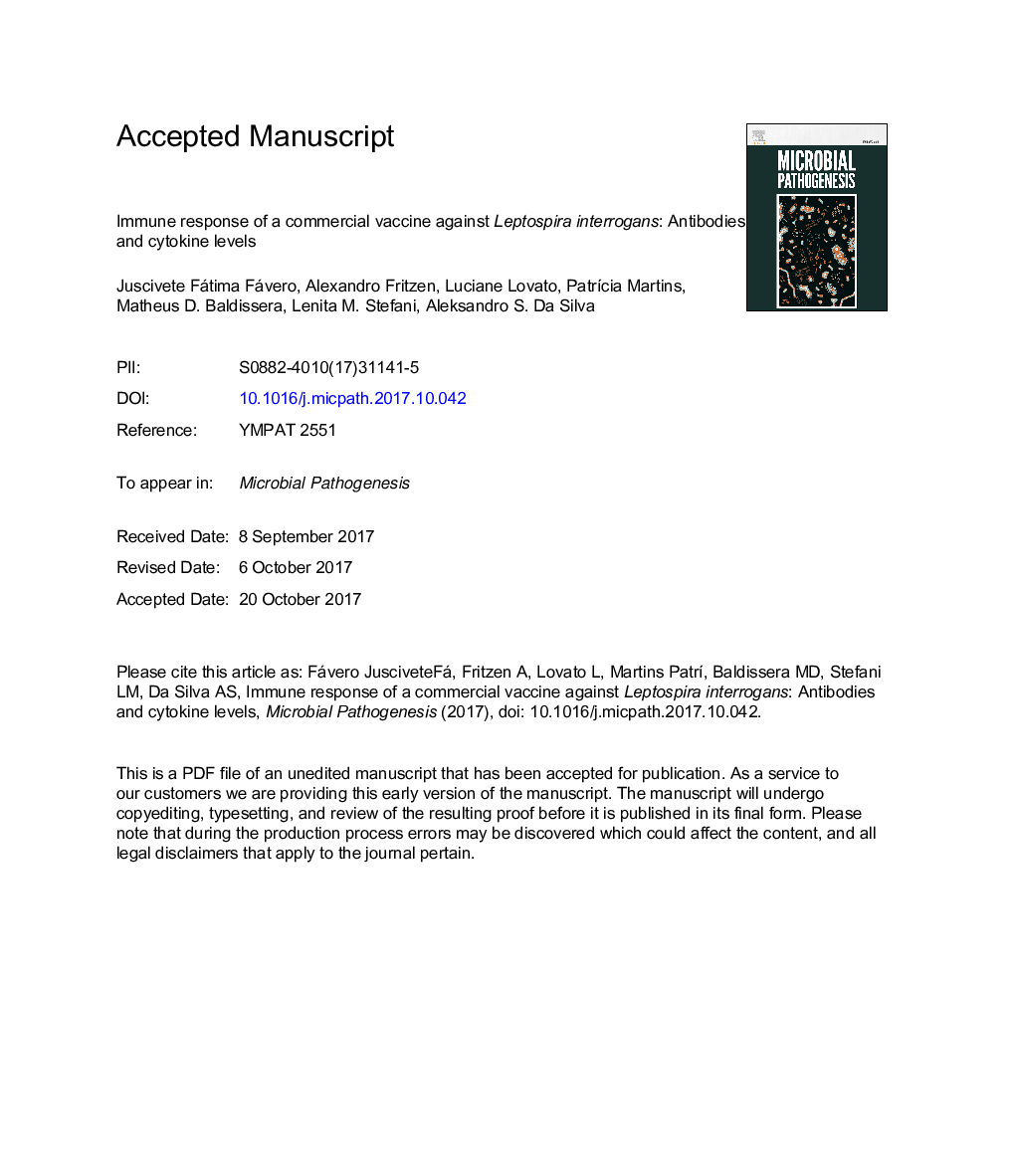| Article ID | Journal | Published Year | Pages | File Type |
|---|---|---|---|---|
| 8749846 | Microbial Pathogenesis | 2018 | 17 Pages |
Abstract
Good vaccines should confer protection against specific pathogens in experimental and field conditions. However, some commercial vaccines are not capable to confer protection to animals, being inefficient in a bovine vaccine program. In this sense, the aim of this study was to evaluate the antibody levels involved in the immune response in vaccinated cows against leptospirosis, as well as acute phase protein and the immunological markers in a vaccine program in beef cattle. Twenty non-lactating cows, negative for leptospirosis and without vaccination against this disease were evaluated during five months. The herd was divided into two groups named as A (the control group) and B (the vaccinated group). Ten cows from the group B received an initial dose (5Â mL) of vaccine on day 0 and one booster dose (5Â mL) on day 29. In order to evaluate humoral response (MAT -Â titration 1:25), cytokine levels (tumor necrosis factor (TNF) and interleukin-10 (IL-10)), and C-reactive protein levels (an acute phase protein), blood samples were evaluated on days 0, 29, 40, 83 and 144 after vaccination. In none of the evaluated periods it was observed specific antibodies to any of the six serovars presents in the vaccine, as well as no difference between groups regarding cytokine and C-reactive protein levels. Therefore, the vaccine used did not stimulate the immune response of cattle, inferring the absence of protection against infections by L. interrogans.
Keywords
Related Topics
Life Sciences
Immunology and Microbiology
Microbiology
Authors
Juscivete F. Fávero, Alexandro Fritzen, Luciane T. Lovato, PatrÃcia Martins, Matheus D. Baldissera, Lenita M. Stefani, Aleksandro S. Da Silva,
